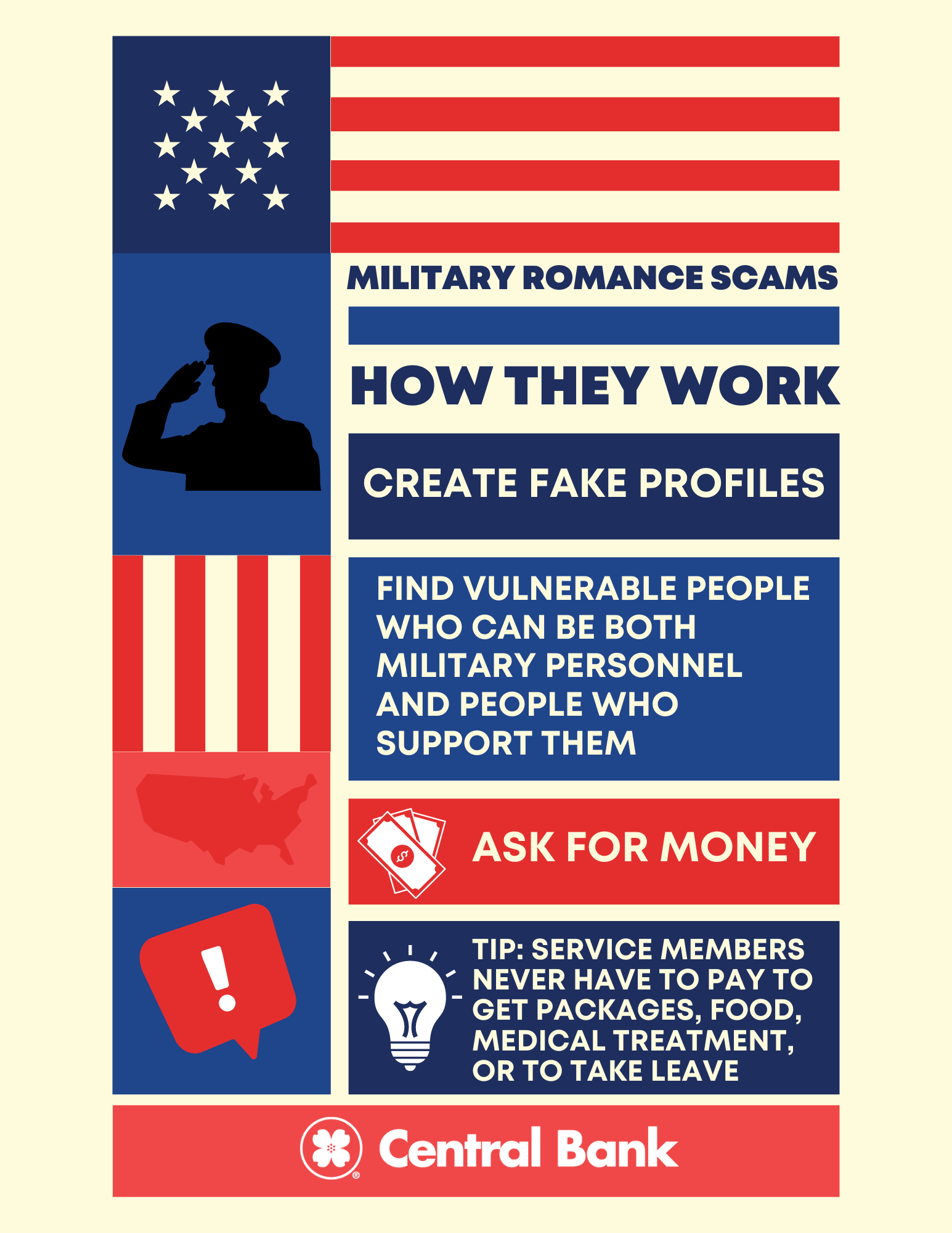Military scams often involve people pretending to be in the military to trick you into sending them money. These scams happen when people create fake profiles pretending to be soldiers on dating sites and social media. They move quickly, pretending to fall in love and then asking for money for things like emergencies or travel.
How Military Scams Work
- Create Fake Profiles: Scammers use pictures of soldiers they find online to make fake profiles. They often use stolen photos of real soldiers and claim to be deployed overseas. The scammers reach out through dating sites or social media.
- Find Vulnerable People: They target people who might be vulnerable and start talking to them. These targets can be both military personnel and people who support them.
- Ask for Money: After initiating online conversations and cultivating a connection, they request money for various false reasons, a few being:
- Scammers say they need cash to apply for a “leave request” to visit you.
- They need money to pay for food and medical treatment during their deployment.
- The scammer might ask you to send them a care package by wiring money through an official-looking (but fake) military website.

Spotting Military Romance Scams
Know the signs to avoid getting scammed:
- They urgently ask for money.
- They use emotional tricks to get sympathy.
- They make up medical emergencies to get money.
- They avoid video calls to stay hidden.
- Their stories don't add up.
How to Protect Yourself
- Service members never have to pay to get packages, food, medical treatment, or to take leave.
- Be careful with requests for money or personal information, even if they seem real.
- Check if profiles and stories are true by doing searches or asking questions.
Staying alert and informed is key to staying safe from military romance scams and keeping your money safe. If you suspect someone is a scammer, cut off contact. Tell the online app or social media platform right away, and then tell the FTC at ReportFraud.ftc.gov.